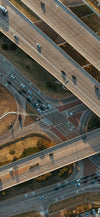There are few things more embarrassing than a car that squeals loudly every time you press the brake pedal. Passers-by stare at you, and in traffic it's incredibly irritating. If your car is afflicted, here's how to deal with it…
Why do brake pads squeal?
In a word 'vibration'! As you press the brake pedal it forces the brake pads against the brake disc. It's the friction between the pad and the disc that causes the car to slow down.
When you consider the weight of the car the brakes have to cope with, and the relatively small area that the pads are in contact with the disc, it's clear that they're pressing bloody hard!
And sometimes, when you're braking, the drag caused by the friction causes the pads to vibrate against the disc which in turn can cause the high-pitched squeal.
It's worth noting that on some cars the pads are actually designed to squeal when they get low – so whenever you hear the brakes making unwanted noises it's worth having a good look a them.
It's also perfectly normal for brakes to make the occasional odd noise when it's wet, and for them to feel a bit 'grindy' when you drive the car after it's been sat for a bit. But once you've applied them a couple of times there should be no reason for them to be noisy.
How to stop brake pads from squealing?
Thankfully there are several things you can do to stop pads from squealing. The first thing to do is to check that there is plenty of 'meat' left on the pad, and that they don't need replacing. If not then the next step is to partly dismantle, clean and grease the relevant components.
01 Securely and safely jack up the car and remove the wheel.
02 Inspect the condition of the pad and disc. If they need replacing, do so.
03 If the brakes are in good condition give the whole area a good clean with a stiff wire brush and some brake cleaner. This will remove brake dust and other contaminants which could be causing your issue.
04 Next remove the brake caliper, and the brake pads (taking a note of which way round the pads are fitted, so they go back in the same place). Give them a good clean with a wire brush and remove any loose or flaky corrosion.
05 On the REAR of the pad, and wherever the pad contacts the caliper apply some copper slip, or other high temperature grease. Anti squeal greases are available, and all will ultimately do the same job. The main thing is to ensure no grease gets onto the pad material or the disc!
06 You can also add some suitable grease to the slide pins. Then reassemble the brakes.
07 Before you drive the car give the pedal a few presses to bring the pads in contact with the disc.
All being well this will address your issue, if not you may need to consider fitting some different pads – many come with an anti-squeal backing, or an anti-squeal shim that fits on the back of the pad.

